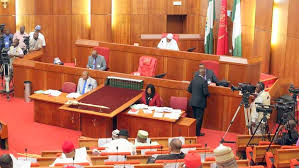An investigation by The Nigeria Education News has reignited public outrage after revealing a shocking pay disparity: a Nigerian senator reportedly earns more in a single month than a teacher could possibly make in thirty years. This revelation has fueled nationwide debates on fairness, governance, and the future of education in Nigeria.
Lawmakers as Kings, Teachers as Beggars
Online reactions paint a stark picture of a nation where senators live like royalty while teachers—the backbone of national development—struggle to survive. Many Nigerians believe this imbalance is a key factor behind the country’s declining education system. They warn that unless corrected, classrooms will continue to empty out, leaving behind a broken system and an uncertain future.
Global Comparisons Expose Nigeria’s Priorities
One recurring theme in the discussion is how Nigerian lawmakers compare to global leaders. Critics point out that a senator in Nigeria takes home more than the President of the United States—despite the U.S. having a stronger economy and higher living standards. To many, this proves that Nigeria spends more on sustaining its politicians than on critical areas such as education, health, or infrastructure.
Citizens’ Role in the Imbalance
Several respondents argued that Nigerians themselves contribute to this problem. During elections, teachers, professors, and everyday citizens often vote along ethnic or personal lines rather than choosing competent leaders. As a result, policies that enrich politicians at the expense of education continue unchecked. They insist that only mass participation in electing credible leaders can secure a fairer system.
Calls to Cut Lawmakers Down to Size
Some contributors directly criticized senators’ access to public wealth. They argued that instead of being pampered with luxury vehicles and extravagant allowances, lawmakers should earn salaries tied to the national minimum wage and operate from modest constituency offices. Such reforms, they believe, would keep politicians grounded in the realities faced by ordinary Nigerians.
Teachers’ Struggles in Focus
Among the many voices, one stood out—that of a teacher with 15 years of experience. Despite holding a degree and pursuing a Postgraduate Diploma in Education (PGDE), he revealed that his monthly salary has never exceeded ₦20,000. To make ends meet, he takes on multiple home lessons. His story reflects the frustration of countless teachers who feel abandoned by a government that undervalues their contributions.
Some respondents offered solutions, urging him to explore online teaching platforms where Nigerian educators, particularly in mathematics and science, can earn far more. Others, however, argued that while senators carry broader responsibilities, such duties cannot justify the extreme privileges they currently enjoy.
The High Price of Political Office
A controversial point raised was the massive cost of securing a senatorial seat in Nigeria. Reports suggest that candidates spend upwards of ₦500 million to contest, a financial gamble that fuels their appetite for inflated salaries and allowances once elected. Teachers, by contrast, spend far less to qualify professionally, yet provide immeasurable value to society.
Education: The Neglected Priority
Most respondents agreed that unless education is prioritised, Nigeria’s future is at risk. They noted that in developed nations, teachers are respected, well-paid, and incentivised. In Nigeria, however, teachers are marginalised, leading many to abandon the profession altogether. Critics stressed that this neglect is not merely financial—it reflects a deeper societal failure to value education.
National Consequences of Neglect
Respondents warned that the pay gap has far-reaching implications. Demoralized teachers translate into declining classroom standards, producing poorly educated graduates who may one day lead the country. This vicious cycle, they argued, fuels corruption, incompetence, and national stagnation.
A Call to Action
The debate concluded with a resounding message: Nigerians must hold lawmakers accountable and demand reforms that prioritise education. Citizens also bear responsibility to vote wisely, avoiding ethnic bias and self-interest. Until then, the vast gulf between senators and teachers will remain a symbol of Nigeria’s governance crisis.

